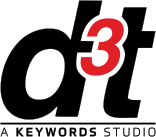Spotlight: Stefan Hambridge, Graduate Programmer
5th Dec 2024

How did your career begin and how did you get your role at d3t?
Game development was something that I was interested in for a long time, and I managed to begin pursuing that dream at university. Whilst there I started out working on general programming knowledge and game development in the Unity engine. Unfortunately, I couldn’t get a work placement during my sandwich year, but this instead allowed me to reach out to different companies and realise what they expected from me.
So, during my final year I asked my lecturer if I was able to work on my projects in the Unreal Engine and develop on my C++ skills rather than Unity. Doing this allowed me to work on my portfolio and have working examples that I could share with studios when it came to graduating.
d3t was one of the many companies that I applied to once I graduated, and didn’t hear back for a while just like many students experience, but that doesn’t mean that they’ve completely brushed you off. Instead after a few months I received an e-mail asking if I was still interested in the role. From there I had to take a programming test and had a few interviews, after which I was then fortunate enough to get my childhood dream job.
What do you do day-to-day as a Graduate Programmer?
Every morning consists of grabbing some breakfast, greeting everyone as I head over to my desk before booting everything up for the day. On my current project we all have a coffee morning meeting where we all have 15 minutes to have a small chat and play some guess the game which is a great team building exercise and some good fun to wake you up in the morning.
We then move over to a quick stand-up meeting where we discuss what our plans are for the day. This helps to know what’s going on across the project and gives us the opportunity to ask for help and/or discuss solutions to problems that any of us may be facing.
The rest of the day typically consists of working on or carrying out investigations on tasks, carrying out code reviews – which not only helps to keep the project moving but allows me to read and learn from other programmers. Writing up documentation on features that are complete so that others across other disciplines can easily understand it, also is a key part of my tasks.
What has been your most memorable moment working at the studio?
My most memorable moment has to be when I passed my probation, and hearing all the feedback that I received. It was incredibly relieving to hear that I was doing something right and that I didn’t have to worry so much anymore.
If it wasn’t that then it would have been when our Lead Programmer Russell Cargill gave me a golden star which is still on my keyboard to this day!
Do you have any tips for people looking to get into the games industry?
You may hear it all the time, but building a portfolio and gaining that experience is incredibly helpful and valuable. When I first attempted to get a work placement during university, not having enough to show on my portfolio was really letting me down. Games Studios and companies want to see a range of experience and that’s why I took the leap to hone my skills in Unreal Engine and C++ during my final year at university.
Getting work experience and taking code tests online also shows that you’re active and wanting to learn and progress yourself, which is what employers want. One of the things I did was partake in a Unreal Engine skills bootcamp which allowed me to get some industry experience in Unreal Engine and have an insight into some of the procedures in game development. HackerRank is another thing that I actively participated in, taking their tests and earning their online certificates, which is an effective way to show that you are progressing yourself.
We are hiring
Stay tuned for more spotlight features coming soon. In the meantime, if you’re feeling inspired and want to join our team, check out our vacancies page!

